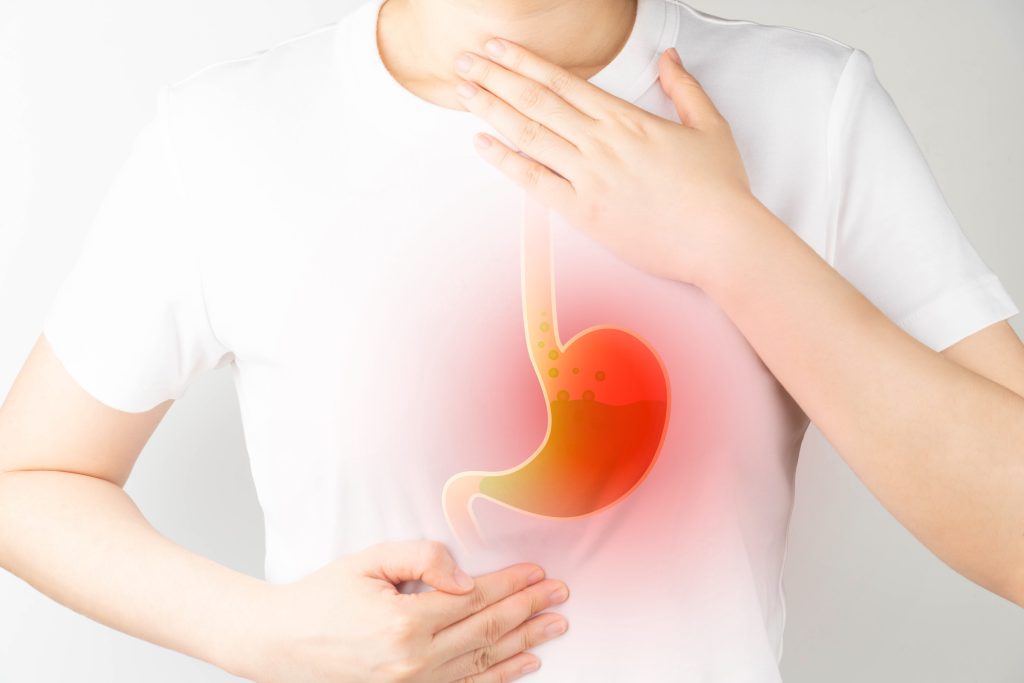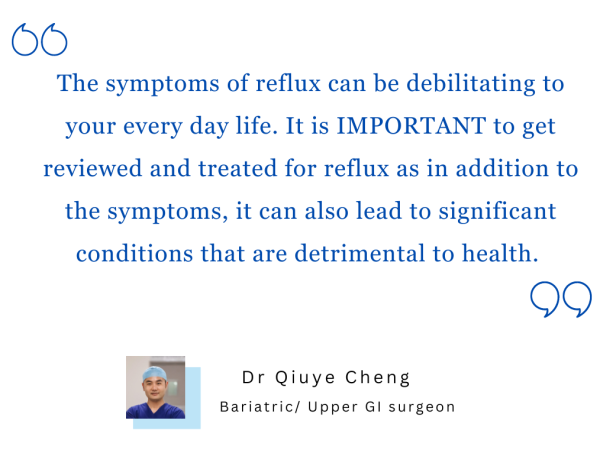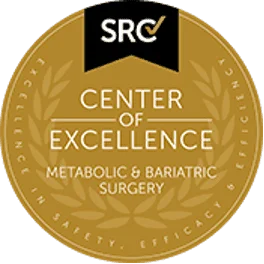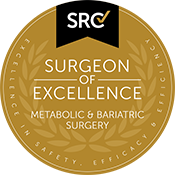What is Reflux (Gastro-esophageal Reflux Disease)?
Reflux and gastro-esophageal reflux disease (i.e. GORD) can often be used interchangeably. Normally the stomach contents do not enter the oesophagus due to a natural one way valve called the lower oesophageal sphincter. But in patients with GORD/ reflux, stomach content travels back into the oesophagus because of this sphincter is dysfunctional. The lower oesophageal sphincter is a ring of muscle fibres that surrounds the lower-most end of the oesophagus where it joins the stomach.
Here at SGOS, we are a high volume sub-specialist in managing reflux. The clinic has helped thousands of patients who have suffered or are suffering from GORD.

Do You Suffer From These Symptoms?
Typical Symptoms of Reflux
- Heartburn
- Volume reflux (sour taste in the mouth)
- Chest discomfort behind the sternum bone
Atypical Symptoms of Reflux
- Throat discomfort
- Sensation of of “lump” in the throat
- Recurrent lung infections
- Dry cough or wheezing
- Voice changes
- Dentition issues
Understanding Diseases Associated with Chronic Reflux
Esophagitis is an inflammation of the esophagus, the tube that carries food from the mouth to the stomach. This condition can be caused by a variety of factors and may result in symptoms such as difficulty swallowing, chest pain, and heartburn. Understanding the causes, symptoms, and treatment options is essential for effective management
An esophageal stricture is a narrowing of the esophagus that can cause swallowing difficulties and other related symptoms. It often results from chronic inflammation and scarring from long term acid or bile exposure.
Barrett’s esophagus is a condition in which the normal tissue lining the esophagus changes to tissue that resembles the lining of the intestine. This change is a response to chronic acid exposure from gastroesophageal reflux disease (GERD). While Barrett’s esophagus itself doesn’t cause symptoms, it increases the risk of developing esophageal adenocarcinoma, a type of esophageal cancer.
It is associated with other risk factors like:
- age
- male
- smoking
- excessive alcohol consumption
- obesity
- ethnicity – more prevalent in caucasians
Esophageal cancer is a malignancy that occurs in the esophagus, the long tube that carries food from the throat to the stomach. There are two main types of esophageal cancer: adenocarcinoma and squamous cell carcinoma. Each type originates from different cells in the esophagus and has distinct risk factors.

Tests and Investigations for Reflux
There are several tests that can be performed to diagnose GORD and they include:
This test allows the doctor to examine the inside of the patient’s oesophagus, stomach, and portions of the intestine, with an instrument called an endoscope, a thin flexible lighted tube.
These are diagnostic x-rays in which barium is used to diagnose abnormalities of the digestive tract. You are asked to drink a liquid that contains barium. The barium coats the walls of the oesophagus and stomach and makes the abnormalities visible more clearly. Then X-rays are taken to see if there are strictures, ulcers, hiatal hernias, erosions or other abnormalities.
In this procedure, a tube will be inserted through the nose into the oesophagus and positioned above the LES. The tip of the tube contains a sensor which can measure the pH of the acid content refluxed into oesophagus. A recorder, strap-like device that can be worn on wrist, will be connected to record the pH of the acid content. The tube will be left in place for 24 hours. Patients can also go back home and perform their regular activities and can record the pH of the acid content when they experience the symptoms. On the next day the recorder will be connected to a computer and the data will be analysed.
Understand more about pH monitoring studies here – https://medlineplus.gov/lab-tests/esophageal-ph-test/
This test is similar to pH test but requires two probes; one is placed in the stomach and the other just above the stomach. The dual sensor helps to detect both acidic and alkaline reflux.
Understand more about Manometry here – https://www.mayoclinic.org/tests-procedures/esophageal-manometry/about/pac-20394000
Bravo probes like pH monitoring studies, are useful in measuring the acid levels and objective episodes of reflux in your oesophagus. It is a specialised probe placed during endoscopy that sits in the middle of the oesophagus that then records relevant information which is transcribed to a dedicated computer program. The probe itself dislodges and passes through your gut system a few days after insertion.
Understand more about the BRAVO probe here – https://www.youtube.com/watch?v=IPM_4VDlw7M
How Do We Treat Reflux / GORD?
A step up approach should always be taken when managing reflux.
At the first instance – lifestyle modifications can help alleviate mild symptoms.
When reflux issues become more persistent, please let your GP know as they have options to manage symptoms through the use of medication.
If you are using medication on a long term basis or have debilitating symptoms despite medications, it is time to see a reflux specialist who can guide you through the necessary investigation and tailor management for you.
- Dietary Changes: Avoid foods and drinks that trigger symptoms (e.g., spicy foods, chocolates, tomato based foods, alcohol, caffeine).
- Eat Smaller Meals: Avoid overeating.
- Managing obesity: weight loss can help reduce symptoms of GORD.
- Stay Upright After Eating: Do not lie down or go to bed immediately after meals. This means eating dinner earlier
- Avoid Smoking: Smoking can worsen symptoms.
- Sleeping with 2 pillows: Helps to reduce symptoms of volume reflux at night through the help of gravity.
- Antacids: Neutralize stomach acid.
- H2 Blockers: Reduce acid production (e.g., ranitidine, famotidine).
- Proton Pump Inhibitors (PPIs): Block acid production and promote healing (i.e. Nexium, Pariet, Somac)
- Antifungal or Antiviral Medications: For infections causing esophagitis.
- Corticosteroids: For eosinophilic esophagitis to reduce inflammation.
- Hiatal hernia repair + Fundoplication: Strengthens the lower esophageal sphincter to prevent reflux.
- Esophageal Dilation: For narrowing of the esophagus due to scarring.



